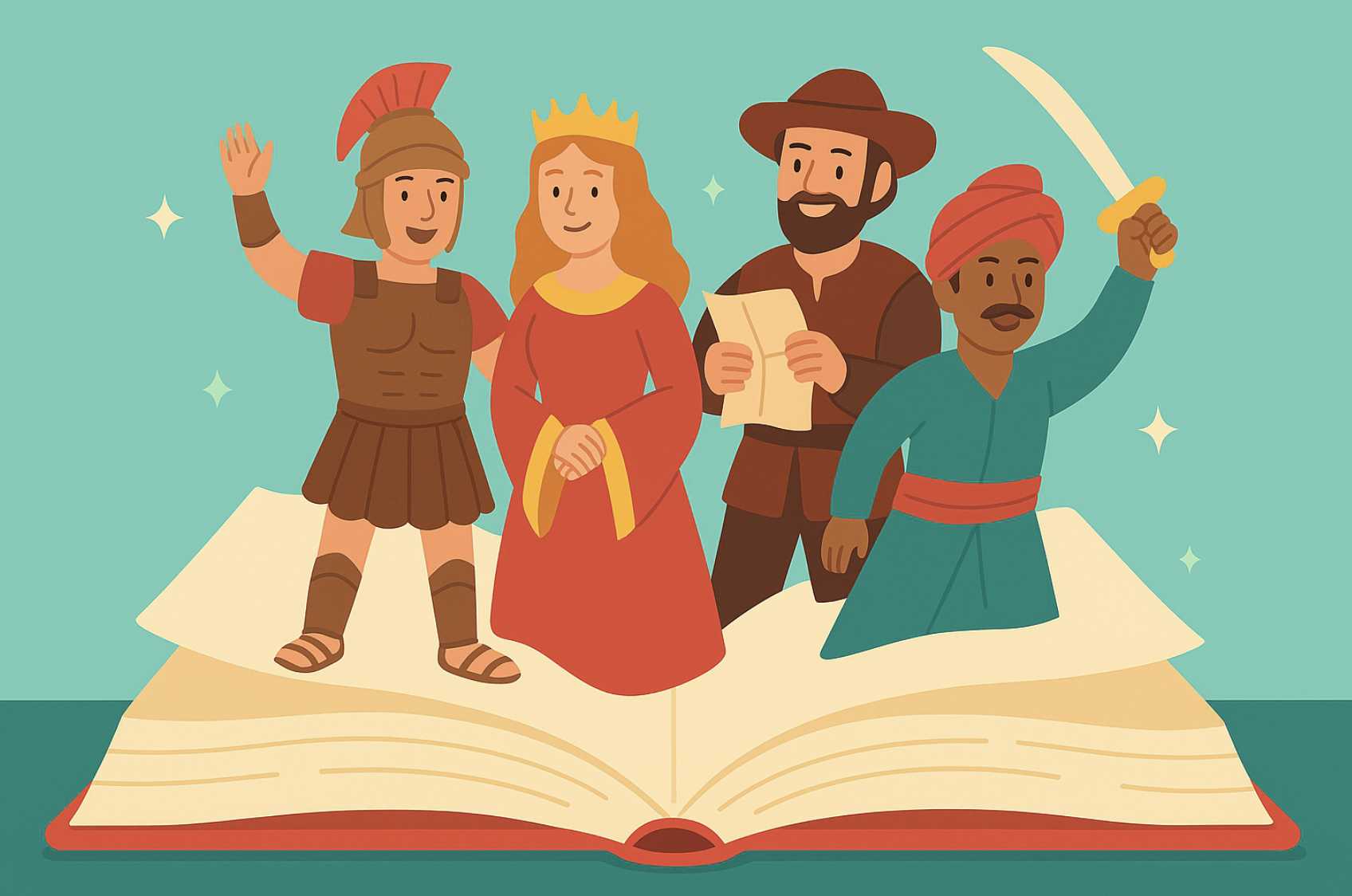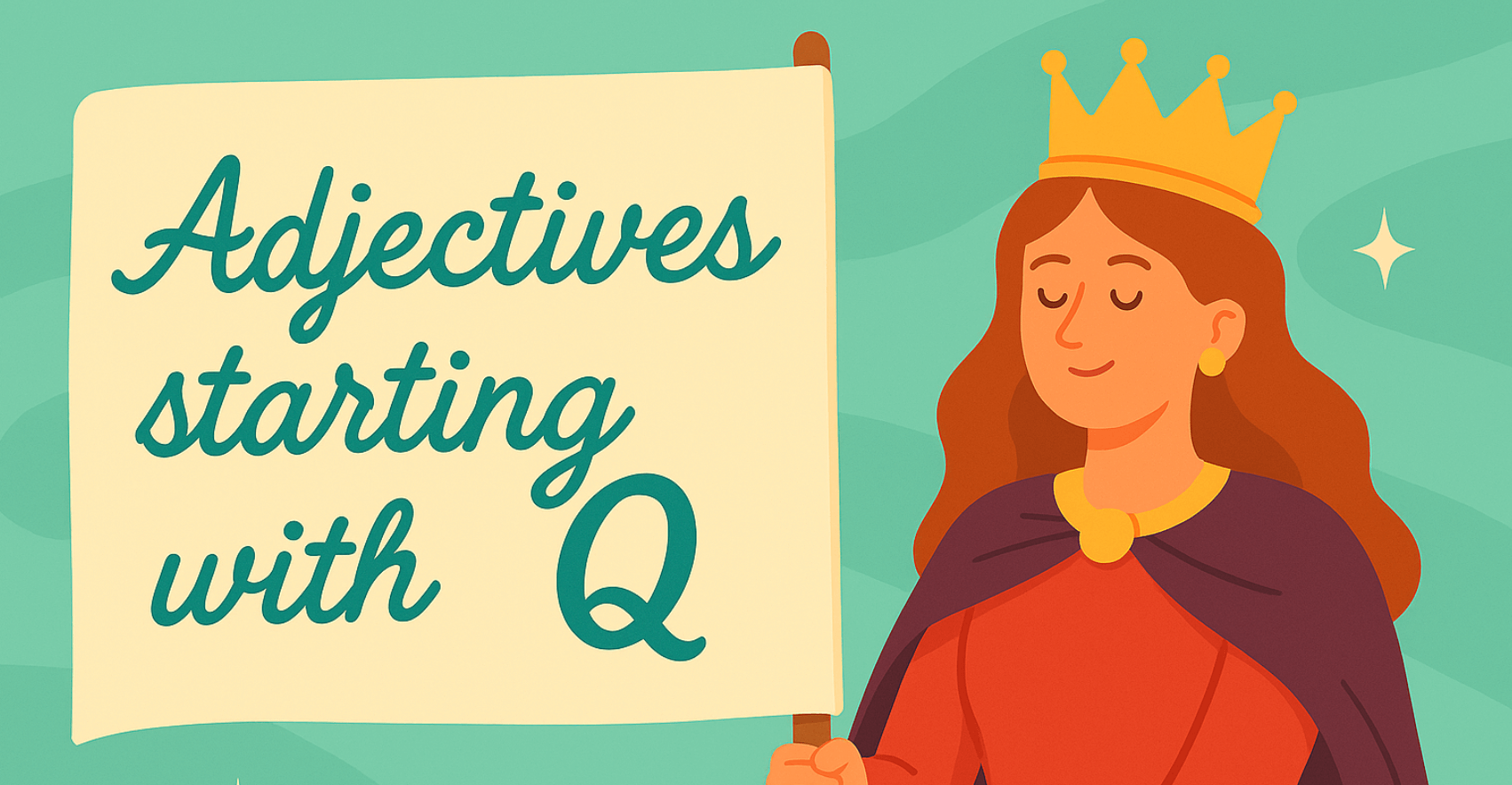Have you ever found yourself missing a fictional character long after finishing a book or watching a movie? It’s like they’ve become a part of your life, their quirks, dreams, and struggles lingering in your mind. That’s the magic of fictional characters; they have the power to transport us into their worlds and make us feel like we’ve lived alongside them.
Whether it’s the daring adventures of Harry Potter, the sharp wit of Sherlock Holmes, or the quiet strength of Katniss Everdeen, fictional characters shape the stories we love and stick with us long after the credits roll or the last page is turned. But what exactly makes a character unforgettable? Why do some characters become legends while others fade into obscurity?
In this blog, we’re diving into the world of fictional characters. We’ll explore what makes them so compelling, take a look at some of the best, most famous, and popular characters from books and films, and uncover what it is that makes them so memorable.
What Are Fictional Characters?
At their core, fictional characters are the heart and soul of any story. They are the creations that drive the plot, evoke emotions, and often reflect aspects of our own experiences. But what exactly are they?
Fictional characters are people, animals, or even objects that exist only within the context of a fictional world—whether it’s a book, movie, TV show, or any other form of storytelling. They can be as complex as a multi-layered human being, or as simple as a talking animal with a single trait. The beauty of fictional characters is that they don’t have to follow the rules of reality; they can be anything, from an all-knowing wizard like Gandalf, to an ordinary teenager trying to survive in a dystopian world, like Tris Prior in Divergent.
Think of them as the vessels through which stories unfold. The character’s journey is usually intertwined with the themes and messages the story wants to convey. Take The Lord of the Rings. Frodo’s journey is not just about walking across Middle-earth, but about the personal struggle against the temptation of power and the importance of friendship. It’s a universal message, told through a character who’s relatable despite being in an entirely fantastical world.
What makes these characters memorable, though? It’s their complexity. A well-developed fictional character has depth: they have motives, desires, flaws, and growth. Their actions and decisions impact the story and often provide a window into the larger themes of the work. Think about someone like Harry Potter. He may be a young wizard, but his experiences of loss, bravery, friendship, and ultimately sacrifice are deeply human. Despite his magic, we see his vulnerability, making him all the more real to us.
Your Publishing Journey Awaits – Start NowThe Best Fictional Characters: What Makes Them Stand Out?
When we talk about the best fictional characters, we’re not just talking about those who are the most popular or famous. We’re talking about those who leave an imprint on our hearts, the ones we think about even when we’re not reading or watching their stories. But what is it that makes a character stand out from the crowd and become truly unforgettable?
One key factor is depth. The best characters aren’t flat or one-dimensional. They evolve, they face challenges, and they make mistakes. Think of someone like Tony Stark (Iron Man). He’s a billionaire genius, but he starts off as a cocky, self-centered character. Over time, though, he’s forced to confront his own flaws and fears, ultimately becoming a selfless hero who sacrifices everything for the greater good. It’s that journey, that transformation, that makes Tony Stark unforgettable.
Then there’s relatability. A great fictional character often feels like someone we could meet in real life, someone whose struggles, joys, or emotions we can identify with. This doesn’t mean they have to be just like us. They could be a wizard, a vampire, or a detective. But what makes them relatable is how they deal with challenges. Take Katniss Everdeen from The Hunger Games, for example. She may be a deadly archer fighting for her life in a dystopian world, but at her core, she’s driven by the desire to protect her loved ones, something we can all understand.
Another trait of great characters is complexity. Think about someone like Sherlock Holmes. On the surface, he may seem like a quirky, almost emotionless genius, but as we peel back the layers, we discover a man who is deeply conflicted and often lonely. This complexity makes him more interesting and compelling; he’s not just a brilliant detective, he’s a person with depth, contradictions, and vulnerabilities.
The best fictional characters are also memorable. They have traits, quirks, or catchphrases that stick with us long after we’ve finished their stories. Whether it’s “I am Groot” from Guardians of the Galaxy or the iconic “Elementary, my dear Watson” from Sherlock Holmes, these lines and moments are etched into our pop culture consciousness.
Ultimately, the best fictional characters become more than just plot devices. They become symbols of the things we care about, bravery, kindness, redemption, or even the struggle against our own weaknesses. And that’s what keeps us coming back to them, again and again.
Famous Fictional Characters That Have Left a Legacy
Some fictional characters transcend the stories they inhabit and become legends. These are the characters who shape entire cultures, influence generations, and become symbols in their own right. From books to films to pop culture, these famous fictional characters have left an indelible mark on the world.
Sherlock Holmes
Take Sherlock Holmes, for example. Created by Sir Arthur Conan Doyle, Holmes isn’t just a detective, he’s the detective. His sharp intellect, uncanny observation skills, and memorable catchphrases have made him one of the most iconic characters in literary history. But his influence goes beyond literature. Holmes has been adapted into countless films, TV shows, and even modern-day reinterpretations. From Robert Downey Jr.’s charismatic portrayal to Benedict Cumberbatch’s brooding, modern take, Sherlock Holmes has evolved over time, but he still represents the epitome of logical reasoning and brilliant deduction.
Darth Vader
Then there’s Darth Vader from Star Wars, a character whose transformation from a heroic Jedi knight to a dark Sith lord is one of the most powerful in film history. Darth Vader’s iconic black armor and deep voice are instantly recognizable, and his story of redemption, despite his flaws, continues to resonate with audiences worldwide. He’s a tragic figure—one who was shaped by his choices but ultimately seeks redemption, showing that even the most fearsome villain can be layered with humanity.
Harry Potter
Another example is Harry Potter, the boy who lived and grew into a symbol of hope and courage. While J.K. Rowling’s magical world introduced us to countless characters, Harry Potter stands out as a figure who represents resilience, friendship, and the fight against evil. What makes him truly iconic, though, is that he’s not just a hero who defeats the dark forces around him—he’s a hero who struggles with his own doubts, fears, and insecurities. It’s this humanity that makes Harry Potter so beloved across the globe, creating a fandom that continues to thrive years after the final book was published.
Indiana Jones
And let’s not forget about Indiana Jones, the adventurous archaeologist who’s as comfortable with a whip as he is with a map. From battling Nazis to solving ancient mysteries, Indy is the quintessential action hero. His charm, wit, and fearless attitude have made him a cultural icon, with the Indiana Jones franchise continuing to inspire adventure and exploration in both cinema and real life.
These characters are famous not just because of the stories they tell, but because they embody something universal; whether it’s the quest for knowledge, the battle between good and evil, or the power of friendship and love. They are the archetypes that future generations look up to, and their legacies continue to shape how we see the world of fiction today. What makes them even more remarkable is that, even as the world changes around them, these characters remain just as relevant and beloved as they ever were.
Popular Fictional Characters in Modern Culture
In today’s world, fictional characters continue to evolve and capture our hearts, but the ones that dominate pop culture seem to have a special blend of relatability, uniqueness, and timely relevance. These modern characters don’t just appear in books or movies—they become part of the fabric of everyday conversations, memes, and social media trends. Let’s take a closer look at some of these characters who are defining modern culture.
Eleven from Stranger Things
Eleven from Stranger Things is a perfect example of a modern character whose influence is undeniable. When we first meet Eleven, she’s a girl with a mysterious past and extraordinary telekinetic abilities. As the show progresses, her character grows from a frightened, isolated child into a powerful force for good. Eleven’s struggles with friendship, identity, and belonging resonate with many of us, especially as she navigates the turbulent teen years while trying to save her friends. Her iconic look, marked by a pink dress and shaved head, is instantly recognizable, and her powerful line “Friends don’t lie” has become a rallying cry for those who believe in loyalty and honesty above all else.
Elsa from Frozen
Elsa from Frozen is another character who has taken the world by storm. When Frozen debuted, Elsa became an unexpected cultural phenomenon. With her magical powers to control ice and snow, Elsa represents the power of self-acceptance, independence, and overcoming fears. The song “Let It Go” became an anthem for those learning to embrace who they are, flaws and all. Elsa is a modern-day heroine whose journey of self-discovery and empowerment has touched the hearts of children and adults alike. She broke away from traditional princess tropes, bringing to the forefront a message of self-reliance that resonated globally.
Deadpool
Then we have Deadpool, the antihero who turned the superhero genre on its head. In a world full of perfect heroes and villains, Deadpool stands out as someone who is unapologetically flawed, sarcastic, and real. His humor, often breaking the fourth wall, makes him one of the most unique and entertaining characters in recent pop culture. He’s not your typical “save the world” hero—he’s a mercenary dealing with personal trauma, redemption, and an overwhelming amount of sass. Deadpool’s popularity skyrocketed because of his unfiltered personality and his ability to challenge the conventions of what a superhero should be.
Baby Yoda
Lastly, we can’t ignore The Mandalorian, or more specifically, Grogu, affectionately known as Baby Yoda. Although Grogu isn’t technically Yoda, his adorable appearance and lovable mannerisms made him an overnight sensation. What makes Grogu so popular isn’t just his cuteness (though that certainly helps)—it’s the emotional bond he shares with Din Djarin, aka The Mandalorian. The two characters’ father-son relationship speaks to the universal desire for connection, protection, and growth. Grogu became a cultural touchstone, symbolizing the innocence we often see in the simplest things, while also embodying the power of unexpected heroes.
These characters all share a unique quality: they reflect the world around us, making them feel incredibly relevant to today’s society. Whether it’s through their struggles with identity, their defiance of traditional roles, or their search for meaning, modern fictional characters like Eleven, Elsa, Deadpool, and Grogu have captured the imagination of audiences worldwide. They’ve transcended their stories to become symbols of the personal growth, relationships, and self-empowerment that resonate with today’s viewers. And in doing so, they’ve become more than just characters; they’ve become icons of modern culture.
What Are Some Fictional Characters That Define Their Genres?
Certain fictional characters don’t just exist within their stories—they become the very essence of their genres. They define what we expect from a particular type of story and often shape the entire genre in ways that influence future characters. These characters stand as archetypes, representing the themes and tropes that are closely associated with their respective genres. Let’s take a look at a few fictional characters who have come to symbolize their genres.
Superhero Characters: Superman and Wonder Woman
Superhero fiction is a genre that has exploded in popularity over the past few decades, but characters like Superman and Wonder Woman have been defining it since its early days. Superman, created by Jerry Siegel and Joe Shuster in 1938, is the ultimate symbol of heroism and strength. His iconic “S” shield is known worldwide, and his ability to leap tall buildings in a single bound has become a hallmark of the superhero genre. Superman represents the ideal of selflessness and the constant battle between good and evil. In a world full of complicated antiheroes and morally gray characters, Superman remains the gold standard of what it means to be a hero.
Similarly, Wonder Woman, created by William Moulton Marston in 1941, stands as the definitive superheroine. With her superhuman strength, wisdom, and the iconic lasso of truth, she embodies empowerment and justice. Wonder Woman not only broke barriers for women in comic books but also became a symbol of bravery, compassion, and equality. These characters have shaped superhero narratives for decades and set the tone for the genre’s evolution.
Fantasy Characters: Frodo Baggins and Daenerys Targaryen
In the fantasy genre, few characters are as influential as Frodo Baggins from The Lord of the Rings and Daenerys Targaryen from Game of Thrones. Frodo’s journey is the epitome of the reluctant hero. He’s an ordinary hobbit, with no desire for grandeur or glory, but when faced with the task of destroying the One Ring, he rises to the challenge. Frodo’s quiet bravery, vulnerability, and the immense weight of his quest are what make him such a relatable and beloved figure in fantasy literature. His journey exemplifies the theme of personal sacrifice and the idea that even the smallest among us can change the course of history.
On the other hand, Daenerys Targaryen, with her dragons and determination to reclaim the Iron Throne, represents a different kind of fantasy hero. Daenerys evolves from an exiled princess to a powerful ruler. Her rise to power embodies themes of destiny, rebellion, and the struggle for justice. But what sets her apart from other fantasy characters is her unpredictability—her journey shows us that even the most virtuous characters can be shaped by their environment and the choices they make. Daenerys has become one of the most iconic figures in modern fantasy, symbolizing the complex moral landscapes that define the genre.
Detective Characters: Hercule Poirot and Sam Spade
In detective fiction, characters like Hercule Poirot and Sam Spade are the gold standard. Poirot, created by Agatha Christie, is the quintessential detective—a brilliant, eccentric Belgian with an unshakable confidence in his little grey cells. His logical approach to solving mysteries, paired with his unique personality, made him an enduring character in mystery fiction. Poirot’s ability to see through deception and unravel intricate plots set the stage for many of the detectives that followed him.
Sam Spade, created by Dashiell Hammett in The Maltese Falcon, is the embodiment of the hard-boiled detective. Cynical, world-weary, and operating by his own code of ethics, Sam Spade is the character who defined the gritty, noir detective genre. Spade’s refusal to play by the rules, combined with his sharp wit and tough exterior, make him a staple in detective fiction. These characters not only define their genre but also shape how future detectives in literature, film, and television are portrayed.
Science Fiction Characters: Spock and Ripley
In science fiction, Spock from Star Trek and Ripley from Alien have become foundational characters. Spock, the half-Vulcan, half-human science officer aboard the USS Enterprise, is the epitome of logic, reason, and self-control. His struggle between his Vulcan and human sides touches on themes of identity, acceptance, and the search for balance, making him an enduring and beloved figure in science fiction.
Ripley, portrayed by Sigourney Weaver in Alien, redefined the role of women in science fiction. Initially seen as just one of the crew members on a spaceship, Ripley evolves into one of the strongest and most resourceful characters in the genre. Her courage, intelligence, and perseverance in the face of an alien threat broke the mold for female protagonists in science fiction and action films, influencing countless characters who followed.
These characters have become synonymous with their genres because they are the blueprint for what we expect in those stories. From the selfless heroism of Superman to the gritty determination of Sam Spade, these iconic figures represent the very essence of their respective genres. They are the characters that other stories are built upon, and they continue to shape the genre conventions we see today.
The Lasting Impact of Fictional Characters
Fictional characters have the remarkable ability to stay with us long after we’ve left their stories behind. Whether they’re the heroes we cheer for, the villains we love to hate, or the underdogs who surprise us, these characters shape our understanding of the worlds they inhabit—and even the world we live in. The best, most famous, and popular fictional characters transcend their stories to become symbols of larger themes like bravery, love, sacrifice, and growth.
What makes these characters unforgettable is the way they mirror real human experiences. Their journeys, struggles, and triumphs offer us both escapism and a deeper connection to ourselves. From the world-changing adventures of superheroes to the intimate, personal growth of relatable protagonists, fictional characters remind us that stories are not just about the events that unfold, they are about the people we meet along the way.
In a world where we often seek connection, comfort, and inspiration, these fictional figures offer us more than just entertainment. They teach us lessons, provide us with role models (or cautionary tales), and become, in a sense, old friends we can visit anytime we need. Whether you’re still rooting for Frodo to destroy the One Ring or hoping that Eleven will face down yet another supernatural threat, these characters continue to hold space in our hearts.
So next time you find yourself thinking about your favorite fictional character, remember that it’s not just about remembering the story. It’s about recognizing the lasting impact these characters have had on you—and on the world of fiction itself. After all, they aren’t just characters in a book or film—they’re part of what makes us all feel a little more human.
FAQs: Fictional Characters
Q: What makes a fictional character memorable?
A memorable fictional character has depth, relatability, and growth. They evoke emotions, face challenges, and often transform throughout the story. The best characters resonate with audiences because they mirror aspects of human experience, making them feel real, even in fantastical settings.
Q: Who are some of the most famous fictional characters?
Some of the most famous fictional characters include Sherlock Holmes, Darth Vader, Harry Potter, and Wonder Woman. These characters have become cultural icons, transcending their stories to influence books, films, and even society itself.
Q: How do fictional characters define their genres?
Fictional characters often set the tone for entire genres by embodying the themes, tropes, and expectations of that genre. For example, Superman is the ideal superhero, while Frodo Baggins represents the reluctant hero in fantasy. These characters shape how we view their respective genres and influence future creations.
Q: What makes a fictional character stand out from others?
A fictional character stands out through their complexity, relatability, and the impact they have on the story. Characters with unique traits, interesting arcs, and the ability to resonate emotionally with audiences often become iconic and unforgettable.
Q: Why do people connect with fictional characters?
We connect with fictional characters because they often reflect our own struggles, desires, and dreams. They provide us with someone to root for, learn from, or even admire, making their stories feel personal and relatable despite being in a fictional setting.
Q: How do fictional characters shape pop culture?
Fictional characters shape pop culture by becoming symbols of larger ideas, values, or movements. Characters like Deadpool, Elsa, and Eleven have become more than just figures in stories—they represent themes like independence, friendship, and empowerment, influencing conversations, trends, and even social movements.
Q: Can fictional characters evolve over time?
Absolutely! Some of the best fictional characters evolve significantly over time. Characters like Tony Stark (Iron Man) or Daenerys Targaryen change throughout their stories, often reflecting personal growth or shifts in their moral compass. This evolution keeps them fresh and relatable, even as their stories progress.
Q: What makes a character “the best” in fiction?
The best fictional characters are those who leave a lasting impression. They are multifaceted, dynamic, and evoke strong emotions from their audience. These characters often challenge us to think differently, inspire us, or make us reflect on our own experiences, and they remain iconic long after their stories end.







